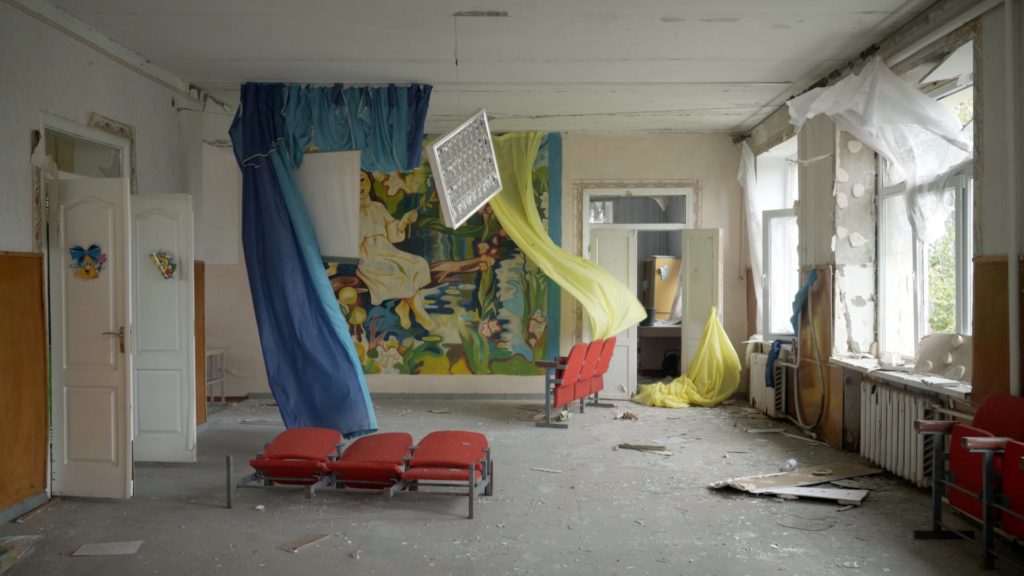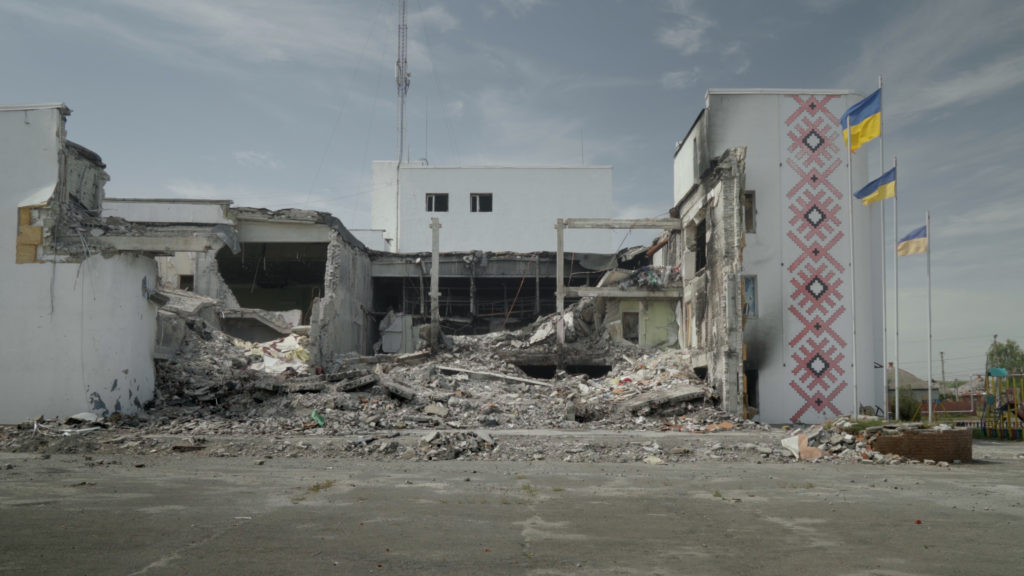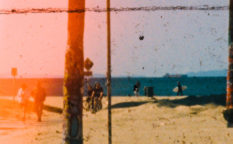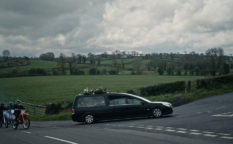Berlinale review: Intercepted (2024) by Oksana Karpovych

Although they were not supposed to contact anyone by phone, Russian soldiers made thousands of phonecalls from the battlefield in Ukraine to their friends and families back in Russia. Most of them were listened in by the Ukrainian special services who regularly posted the excerpts from those phonecalls online from the beginning of Russian full-scale invasion. Some of the calls recorded between March and November 2020 serve as the means of juxtaposing the two worlds – the one told by the soldiers and the real one, in Oksana Karpovych’s devastating, enlightening and enraging documentary Intercepted that screens in Berlinale’s Forum programme.
The selected cuts off represent all kind of people and their opinions, many difficult to listen to, and some relatably disillusioned. A man is going into details depicting different ways of torturing prisoners to his mother, including “making roses” on their bodies (pilling off the skin) before admitting that he kind of enjoys it. Another is trying to explain to his patriotic wife that she is brainwashed, and that nothing is the way it gets presented in the Russian media. And then, there is a father who’s trying to save his son from being drafted, and that’s his ‘last wish’. He is convinced, that there are only two ways of going back home: dead or wounded.
The voices echo through the empty spaces that bear witness of shelling: abandoned living rooms, kitchens without burning stoves, massive holes in the roads and huge pars of building facades crumbled. The absurdity of discussions about “Knokhols” (ethnic slurs for Ukrainians) who have it all, and wear only designer clothes, while what we see are people standing in queues for humanitarian help, or cooking meals outdoors on improvised stoves in front of houses terribly damaged by granates, is total.

In its illustration of war attrocities Intercepted bares certain similarities to Ognjen Glavonic’s Depth Two (2016), a documentary about the attempt to cover up the ethnic cleansing of Kosovo Albanians of 1999, in which ten years of witness-testimony audio recordings from the Hague tribunals are interwoven with present-day images of the sites where the tragedies originally took place. The main difference, not counting such technical aspects es editing and sound, is the physical distance to crime. While Glavonjic went on the trail of war crimes committed in the past, Karpovych is delivering a commentary on a war with no forseeable end.
The film is a significant contribution to a steady growing documentary material about Russia’s full-scale invasion of Ukraine, but it also gives a pretty good insight into the brain-washing policy its government uses to manipulate Russian citizens to belive in the ‘rightness of the cause’. When one of the soldiers tells his mother that his batallion is killing people, she asks him if he is sure they were people. A wife justifies the killing of a Ukrainian mother in front of the eyes of her children: “She’s an enemy, too” Another woman, in shock after hearing the account of ruthless killings of civilians goes numb, before exploding into a pro-peace monologue, trying to explain how everything she is told does not only make any sense, but is dusguisting and inexcusable. At the end she insists to hear no more from him, ever. Her words are overheard. The patriot doesn’t seem to comprehend.
Interecepted is a heavy, hair raising watch that brings the terror of war to the viewership without a stain of blood. Executed with technical precision and with carefully selected images to accompany the excerpts of phonecalls, it creates the tension which does not ebb away until the film’s final scene. It is also due to Charlotte Tourrès’ editingthat the movie takes the form of a chilling ghost saga.
Oksana Karpovych happened to be in Ukraine when the Russian aggression started. She developed the habit of listening to the intercepted phonecalls of Russian soldiers released by the Ukraine’s security services late at night, after long days of witnessing the war crimes right on the spot. Thus, the idea for a movie was born. When she landed the job as a local producer of Al Jazeera in English language, working with foreign reporters, she started observing how the process worked, and after a couple of months she pitched her idea for the documentary to Les Films Cosmos. When talking about her film, the Ukrainian helmer says that it was a process of going on two parallel journeys – using the phonecalls but not making a film about them.
This is one of the most important documents of Russia’s imperialist warmongering.

© Christopher Nunn
Countries: Canada / France / Ukraine
Year: 2024
Runtime: 93′
Written/ Directed by: Oksana Karpovych
Cinematographer: Christopher Nunn
Editor: Charlotte Tourrès
Composer: NFNR
Sound Design/ Sound Mix: Alex Lane
Producers: Rocío B. Fuentes (Canada / Les Films Cosmos), Giacomo Nudi (Canada / Les Films Cosmos), Pauline Tran Van Lieu (France / Hutong Productions), Lucie Rego (France / Hutong Productions), Darya Bassel (Ukraine / Moon Man),
Olha Beskhmelnytsina (Ukraine / Moon Man)
Co-Production with: ARTE France – Génération Ukraine
International Sales: Lightdox
With the support of: Post-Moderne, Women Make Movies

















2024-02-25 @ 13:26
Great review – thanks for it, Marina. A minor criticism: a couple of times you refer to “the Ukraine.” (Or is it an editor’s error?) You must know by now that using the article “the” preceding the name “Ukraine” (Україна) reduces Ukraine to a region belonging to someone else, i.e., Russia. Ukrainians have long asked that this colonial usage be dropped. We would appreciate that being corrected. It’s a minor and insignificant request, in the context of the horrific war, but it’s also not hard to do.
2024-02-27 @ 12:18
Dear Adrian, thank you both for your comment and for the remark regarding the used article
2024-03-04 @ 14:40
Thank you very much for this review. Where can i watch this movie or where else in Germany will it be shown?
2024-04-08 @ 20:13
I think that it will very likely get the distribution